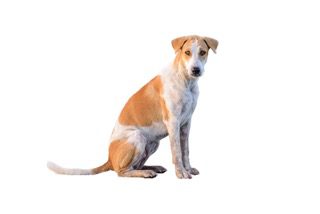

Allergies in dogs can present in a variety of ways, including itchy, red, irritated skin and manifestations such as ear infections, facial swelling, runny eyes and nose, sneezing, or coughing.
Allergies in dogs are usually caused by exposure to environmental allergens, including pollen, dust mites, molds, and specific proteins found in food. These allergens trigger an overreaction of the immune system, resulting in the production of antibodies that cause itching and other symptoms. Other potential causes of allergies in dogs include contact with certain insect species, parasites, medications, and certain fabrics or materials.
Allergies in dogs can be diagnosed by a combination of physical examination, including skin and/or serum allergy testing, as well as a thorough history of the symptoms and possible triggers. If the allergy is environmental, it may require multiple visits to an allergist in order for all of the possible irritants to be identified. Additionally, laboratory tests such as complete blood count, serum chemistry, urinalysis and skin scrapings may be performed in order to rule out other possible causes.
Allergies are generally not considered a serious condition, but they can cause significant discomfort. Left untreated, allergies can lead to other serious health complications, such as sinusitis, asthma, and hives. The mortality rate for allergies is very low and rarely occurs when the condition is untreated.
Allergies in dogs can be treated in a variety of ways. The most common treatments involve avoidance of allergens or exposure to hypoallergenic diets. In some cases, corticosteroids, antihistamines, or other medications may be used to help reduce the symptoms of allergies. Other treatments may include supplements, such as probiotics, fatty acids, and minerals, to help boost the dog’s immune system.
Prevention methods for allergies affecting dogs include avoiding triggers, feeding a balanced diet with quality food, providing regular exercise, and keeping the environment as allergen-free as possible. It is also important to brush and bathe the dog regularly to reduce the amount of allergens it can accumulate on their fur and skin. In extreme cases, allergy shots or immunotherapy may be recommended by a veterinarian.
Allergies in dogs are not contagious, so they cannot be spread to other dogs or to humans. However, if a person has an allergy to animals, they may experience symptoms such as runny nose, itchy watery eyes, and sneezing when exposed to a dog with allergies. Allergies are commonly confused with irritants such as tobacco smoke, dust mites, mold, and pet dander.
Some helpful home remedies to manage allergies include using air purifiers, keeping windows closed, frequently changing furnace filters. Adding house plants that reduce indoor air pollutants, as well as washing bedding weekly can be beneficial. Additionally, using natural antihistamines such as butterbur, nettles, and magnesium can help to reduce allergy severity.
While these remedies may help treat your dog’s allergies, it is always best to consult with your veterinarian. They can provide more specific advice to ensure your pup gets the best possible care.
Poodles, Shih Tzus, Bichon Frise, and Maltese are some of the most vulnerable dog breeds when it comes to allergies. Allergens and irritants can cause these breeds to develop seasonal allergies or itchy skin conditions. Dogs with long, wavy coats tend to become more prone to allergies as their fur is more likely to accumulate pollen, grasses, and other materials from their environment. In addition to regular grooming with a de-shedding brush, these breeds will require more frequent baths and dietary changes to help them manage their allergies. They may also require prescription medications and/or allergen remedies to help them cope with the allergic reactions.
Have you ever had to confront your pup’s allergies? If so, how did you respond and what did you feel? Did you manage it on your own, or did you seek help from a professional? No matter the route you took, know that you’re doing your and your dog’s best to ensure good health. Best wishes as you continue to care for your pup.